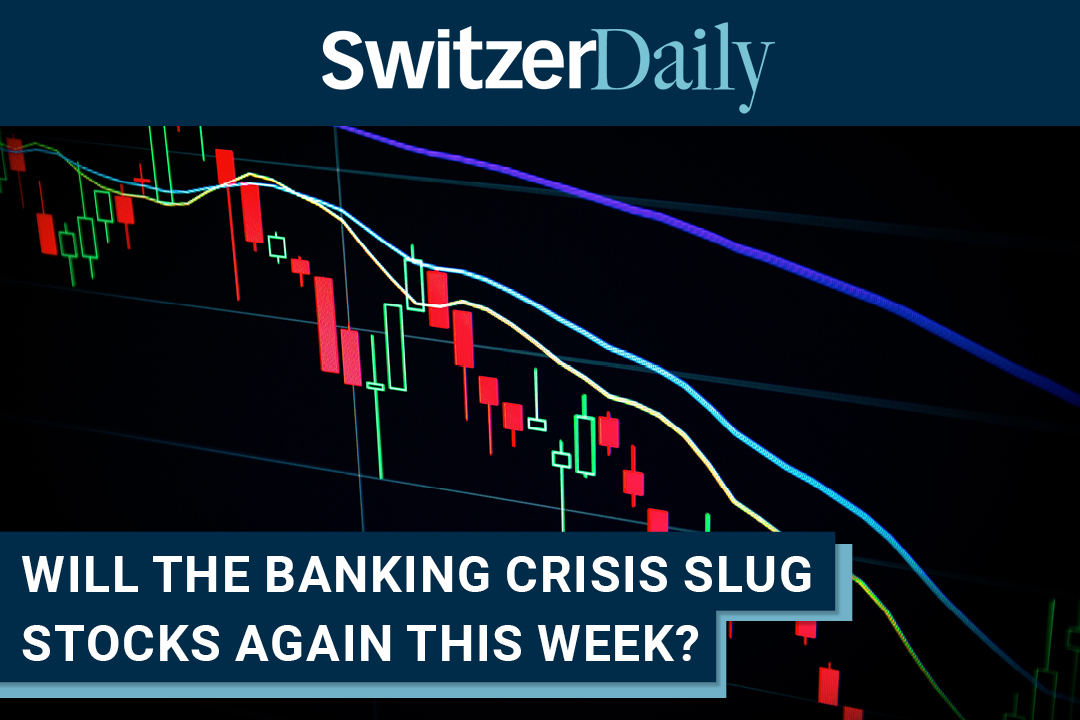

At a time when positive tidings are helpful, the AFR has a positive headline that goes like this: “UBS to buy Credit Suisse in historic deal to end crisis”. If the deal goes through, it would be a huge plus for stocks. That fixes Credit Suisse’s problems but stock prices still have a crisis that showed up on Friday on Wall Street.
This headline from CNBC shows the banking crisis isn’t ending yet: “Dow closes nearly 400 points lower on Friday as First Republic and regional banks resume slide.”
First Republic, a significant Californian bank, was ‘rescued’ by a group of bigger US banks that threw $US 30 billion of deposits at the bank to prove they saw it as a sound place for money. However, on Friday, its share price dived close to 33%, which meant it lost 72% for the week!
This sounds like the US banking crisis has a way to go before we can say it’s all over. I suspect this will be an important week for banks under pressure from customers trying to withdraw their deposits.
This has set our market up for a 98-point fall on the open, if you can trust SPI futures that tip how our stock market starts each day.
Maybe softening the blow is this headline from bbc.com: “Swiss banking giant UBS agrees emergency rescue deal for rival Credit Suisse in government-brokered takeover”.
Now the attention goes back to the USA and its banking challenges. The last thing we need to see is another well-known US bank put their hand up and ask for help. This puts a lot of pressure on Jerome Powell and his Federal Reserve to handle what happens with First Republic (or any other bank in trouble). And all this is in a week when the Fed has an interest rate decision on Wednesday.
The market is expecting the worst-case scenario would be a 0.25% rise in the central bank’s official interest rate, while the optimists are crossing their fingers for a pause in rate rises. But a pause could be seen by the market as the Fed being really worried about the future, which could be bad for stocks.
Not only will the rates decision be important but also the narrative that Mr Powell puts out there. He doesn’t need to spook the market any more than it already is, but he does have two matters to deal with.
First, he must settle down fears about a full-blown banking crisis. The experts from places like debt ratings agency Moody’s say US bank balance sheets are in a good place but runs on small banks could tip these kinds of banks over the edge and will need rescuing.
Second, Powell must show that he’s still fighting inflation.
The irony is that if he goes for a pause in rate rises, which makes sense given the fear of a bank crisis, which will help fight inflation by scaring savers and spenders alike, he could scare others who’ll see the no rate rise decision as saying things are worse than they seem.
Then there’s the market reaction to First Republic this week, after a 72% fall in its share price last week. The pressure is on Jerome Powell — let’s hope he doesn’t screw it up.